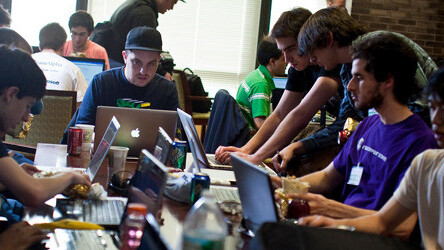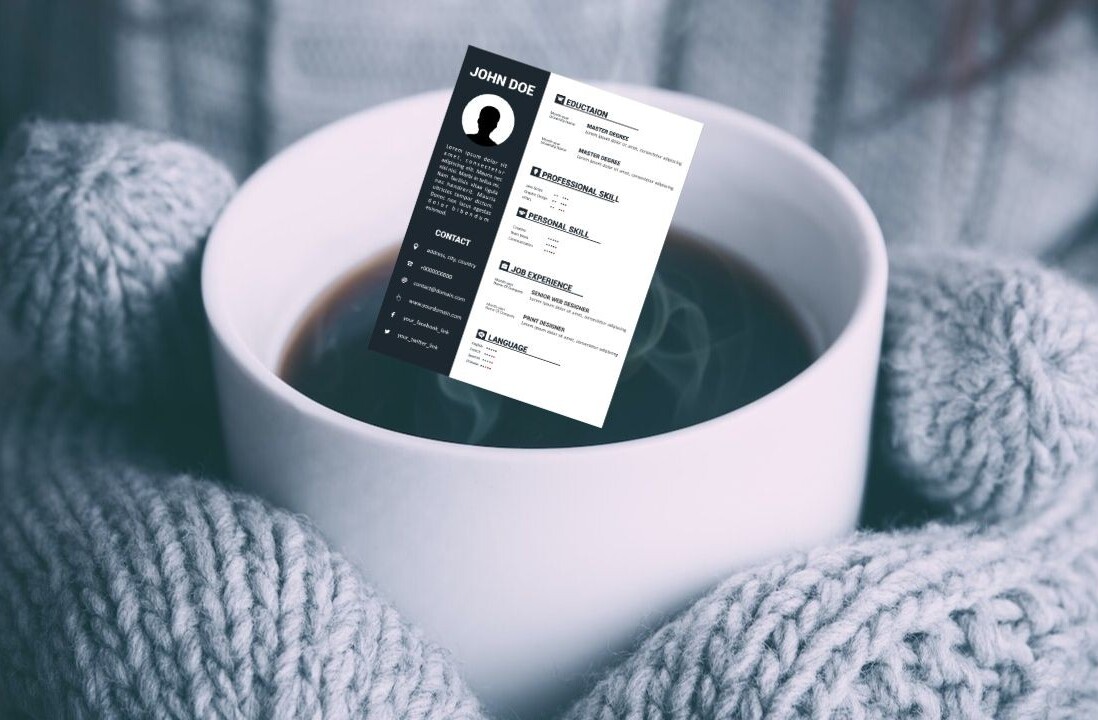
I love covering a good hackathon. There’s a lot to choose from around the UK with many creative, competitive and altruistic versions of a coding get-together where people make amazing things in a short amount of time.
One thing I do see at the end of these events though is a few people looking worn (if elated) by the experience. Looking after yourself is a good idea and will help you to make the most of your time while you’re having fun working.
There is already a great manifesto for hack day organisers, so here’s a guide to surviving a hackathon as a participant, with a few tips from people who attend and operate these events. They might seem obvious, but it’s easy to forget when you’re consumed by a project.
Prepare
Read carefully about the hack day you’re about to attend so that you can make the most of it. Some are very competitive and more about winning a prize where others are more about getting together with friends and making something.
Be open-minded about what you might end up doing. When there is a theme to an event, you might have some idea of what you want to do, but at others, there will be all sorts of ways to use your skills and learn new things.
 Melinda Seckington is a Data Scientist at EmberAds, a blogger and an organiser for Geeks of London and BarCamp London. She recommends an open approach to getting involved, “There’s always some person there that you haven’t met before or a new API you have not played with before. For me it’s a sort of testing ground, a nice weekend where you can try out stuff and learn something.“
Melinda Seckington is a Data Scientist at EmberAds, a blogger and an organiser for Geeks of London and BarCamp London. She recommends an open approach to getting involved, “There’s always some person there that you haven’t met before or a new API you have not played with before. For me it’s a sort of testing ground, a nice weekend where you can try out stuff and learn something.“
Where possible, try to take a look at what you might be working with. Seckington says it might give you some ideas for what you will want to make, “ If you get a chance to look at an API you’re unfamiliar with, then it might help you rather than seeing it for the first time on the day.”
Be sure also that an event suits your beliefs.  and the Guardian, Rewired State and Good for Nothing and he notes that there are many different types of hackathon and not everyone likes the same approach, “There’s always been various different communities of hackers who attach themselves to different events. Some are fans of open data and public services who will like events like Rewired State. You also see some of those people at entrepreneurial, startup focused events. People choose the ideology of an event that will work for them, fit their skills and interests.”
and the Guardian, Rewired State and Good for Nothing and he notes that there are many different types of hackathon and not everyone likes the same approach, “There’s always been various different communities of hackers who attach themselves to different events. Some are fans of open data and public services who will like events like Rewired State. You also see some of those people at entrepreneurial, startup focused events. People choose the ideology of an event that will work for them, fit their skills and interests.”
You should also be aware of what is expected of you when you attend, Bevan says,”To work for Good for Nothing on a charitable cause is understandable for most people. But there are new companies entering the hack day arena who get people to do work for them for the price of a pizza and a beer.”
Drink
Not beer. Well, drink beer if you like, but drink something else too. Dehydration will affect your concentration and general well-being and you’ll feel the effects surprisingly quickly if you don’t get a glass of water or some liquid inside you regularly.
Seckington says it’s easy to forget to rehydrate, “I do forget to drink and I have realised that I have not had a glass of anything for an entire day in the past. I’ve actually been at an event where somebody actually told me to go and drink something because I was looking a bit pale. It depends on how focused you are, you can get carried away.”
Drink and code?
Know thyself. It might be tempting to “down a few looseners” at a hack day to be sociable. Hack days are usually more about the coding so make sure you are still in a fit state to get things done. If a couple of beers puts you in a better frame of mind to be creative, fill your boots, but if you’re not so great with the booze, give it a miss and boost your productivity.
Eat
 At organised events there is usually some food laid on or a nearby cafe or shop to get something to eat. Remember that you’ll be working hard for a long time and so filling up on junk food and sugary snacks are more likely to see you crash than compete.
At organised events there is usually some food laid on or a nearby cafe or shop to get something to eat. Remember that you’ll be working hard for a long time and so filling up on junk food and sugary snacks are more likely to see you crash than compete.
Bevan says that it’s good to vary what you eat. “Fresh air and light is a good idea along with fruit and nuts and not just chocolate and pizza. All of that kind of goes out of the window when people get stuck into their idea. I think sometimes it is easy to lose sight of everything else when the deadline is coming and you want to put across what you have in the best way you can.”
Sleep
Part of the fun at a weekend hack event is that it combines a sleep-over with networking and making cool things. Don’t forget to pay attention to the ‘sleep’ part of sleep-over.
Bevan notes that sleeping at these events is probably rare and people often work right through in order to make something for the deadline. He says that a little preparation might be useful, “Get some sleep before the hackathon begins. Especially if you think you might work right through an entire event.”
Most people have pulled an all-nighter to get something finished, whether it be for work or in education. If you think you might want to work through a weekend, considering taking some naps to refresh a tired mind. Seckington seems to get by with some, but not much sleep and prepares for overnight stays. “I tend to manage three, maybe five hours on a couch or a bean bag somewhere. I’ll bring two sets of clothes. One for the Saturday night and one for the next day’s presentations so I am not going to spend 48 hours in the same clothes.”

Seckington says if you think you will get some proper sleep at an event, try to make the most of it and be comfortable, “Bring a sleeping bag or an inflatable mattress if you know that you are going to end up sleeping somewhere. At Over the Air, collectively we brought 5 or 6 tents for up to 20 people. Some people went to sleep at 3am. That was the most well planned event we did as attendees – we knew there would not be much room at Bletchley Park, so we brought our own tents.”
Take Breaks
Worrying at a problem is not going to solve it straight away. A change of scenery, a bit of chat and a break really helps to spark a new idea or find another angle.
Seckington says that at most hackdays she has been to people take breaks, “With big events there are screenings of Dr Who or the World Cup or something similar. There is always a space to go and take an hour to do something that it not coding. It’s definitely a good idea to have your hands do something else even if your mind is still figuring out the problem.”
Bevan has also seen some fun and high-jinks at hackathons that provide a required mental break, “A shift in focus is very important. At Alexandra Palace we went out into the park and fired rockets or made things with Coke and Mentos.”
Be merry
Hack events can be hectic and you’ll meet a lot of new people as well as catching up with friends. Character clashes are not unknown so take it easy on each other, especially if you’re on a weekender with very little sleep.
On Sunday mornings there are some people who are slow to wake up and not the most enjoyable company, but give them a break and keep in mind that most people are in a similar state and not everyone is a morning person.
Naturally in a competition environment there is bound to be some pressure too, but chilling out and keeping your sense of humour will make an event more fun for everyone. Seckington says, “Go in there and have the mindset that you will play with something new, meet new people and learn new things. You don’t have to enter your work into a competition, you can use the event as a learning experience. It’s a shame when people take the competition too seriously. I’ve been really competitive too, but it’s more fun to take it easy.”
Bevan notes that real friendships can be struck when smart and creative people work together for a common purpose, so look out for each other and note how everyone is getting along. “A bond emerges over the weekends around a group that works together on a project. People help each other out, give each other short cuts and point out resources, which says a lot about the good qualities of the people who attend.”
Nerves
If you’re planning to attend your first hack day by yourself, you can feel a little nervous. Will your skills be up to par? Will anyone talk to you? The answers are yes, yes and don’t worry.
Seckington remembers her first events and where her skills were at that time, “When I started out at hack days, I had not done much Web development. I think it was my fifth or sixth event where I decided to bring my coding skills in. When you jump in the first time you have no idea where to start or what you are doing, but you’re at a hack day and there’s a ton of people around you to ask for help.”
Not everyone is a party animal or a natural performer but don’t let this stop you from striking up a conversation, most people at these events will have something in common with you.

Seckington says, “I started off being really shy and not talking to anyone. I went to more bar camps first to get over it and realised that my skills were worth something to someone in the room. It can be scary the first time but everyone’s been there.”
Everyone was a newbie at some time and no one becomes an expert overnight. If you are feeling uncertain or overawed by the talents of others, speak up. Don’t be afraid to ask questions.
Seckington notes, ”One of the negative qualities that smart people have is that they want to work things out for themselves without having to ask. But there’s so much experience available at these events and people quite like to share what they know. The more events you go to, the more you will realise that it’s okay to ask.”
Assess
You made it through the event, you’re exhausted and exhilarated. Tweet about it, discuss it and think about what you learned. It’s rare for anyone to come away without at least one new idea.
“Whatever you learned at an event will likely inform your next project,” says Seckington. “Last year I started teaching myself Rails. Now I am using it with a startup every day. I think it all comes back to you in some way or another the things that you have learned at hack days.”
Bevan agrees that the learning environment is a really valuable part of these events. “One of the main reasons that people attend is because it is educational. If you are a developer, you can work in a very solitary environment, at a hackday you get to see the cool things other people are working on, it’s the best continuing professional development you can do. You can pick people’s brains, team up with others, experiment in a language you’ve never used before, for fun or just to see if you can do it. There’s not always time or space to do this at work so it’s a great way to improve your skills.”
So, if you dive in at the deep end, you’re bound to have a great time at a hack event. Just make sure you look after the essentials and make the most of what you can do.
Get the TNW newsletter
Get the most important tech news in your inbox each week.





